If you want to recover from burnout, read these 10 books
My collection of ten books helped me understand how to deal with burnout and those that started my recovery.
I have a new opportunity at work to work solely on a project within a small team by day; apart from working on improvement ideas, I get to write weekly newsletters summarising what our team is working on, what’s coming up next, and so on—so I’m right in my element.
As you know, I became burned out two years ago, and bookmarking and reading nonfiction are my attempts to recover and move forward.
Despite the general advice to quit the job where you have been mistreated, find what your passion is, do what you love, etc., I chose to remain in my job that mistreated me and change the system from within. It's not easy. It's impossible at times. I don't have the luxury of quitting and moving in with my parents. I don't have a partner who would support my passions while I recover. I have a partner, but I believe in supporting yourself.
According to XYZ three components define burnout1:
emotional exhaustion — “caring too much for too long.”
depersonalisation — “the depletion of empathy, caring, and compassion.”
decreased sense of accomplishment — “No matter what you do, it’s not enough.”
Over the past two years, I've read numerous books on topics such as burnout, the Great Resignation, languishing, quiet quitting, mental health, and personal healing. Some advice I followed to the teeth, some I discarded as soon as I tested it.
Two years later, I'm finally feeling I'm coming through it and healing. I know I'm not the only one going through it, so I thought this space would be a great chance to share my personal tips, triumphs, and also failures with you—let's call it a nonfiction collection for burnout.
I know most of us have experienced burnout in recent years for one reason or another. If you’re here on Substack, actively posting, the last of the three components that define burnout can also find you here: the feeling that no matter what you do, it’s not enough.
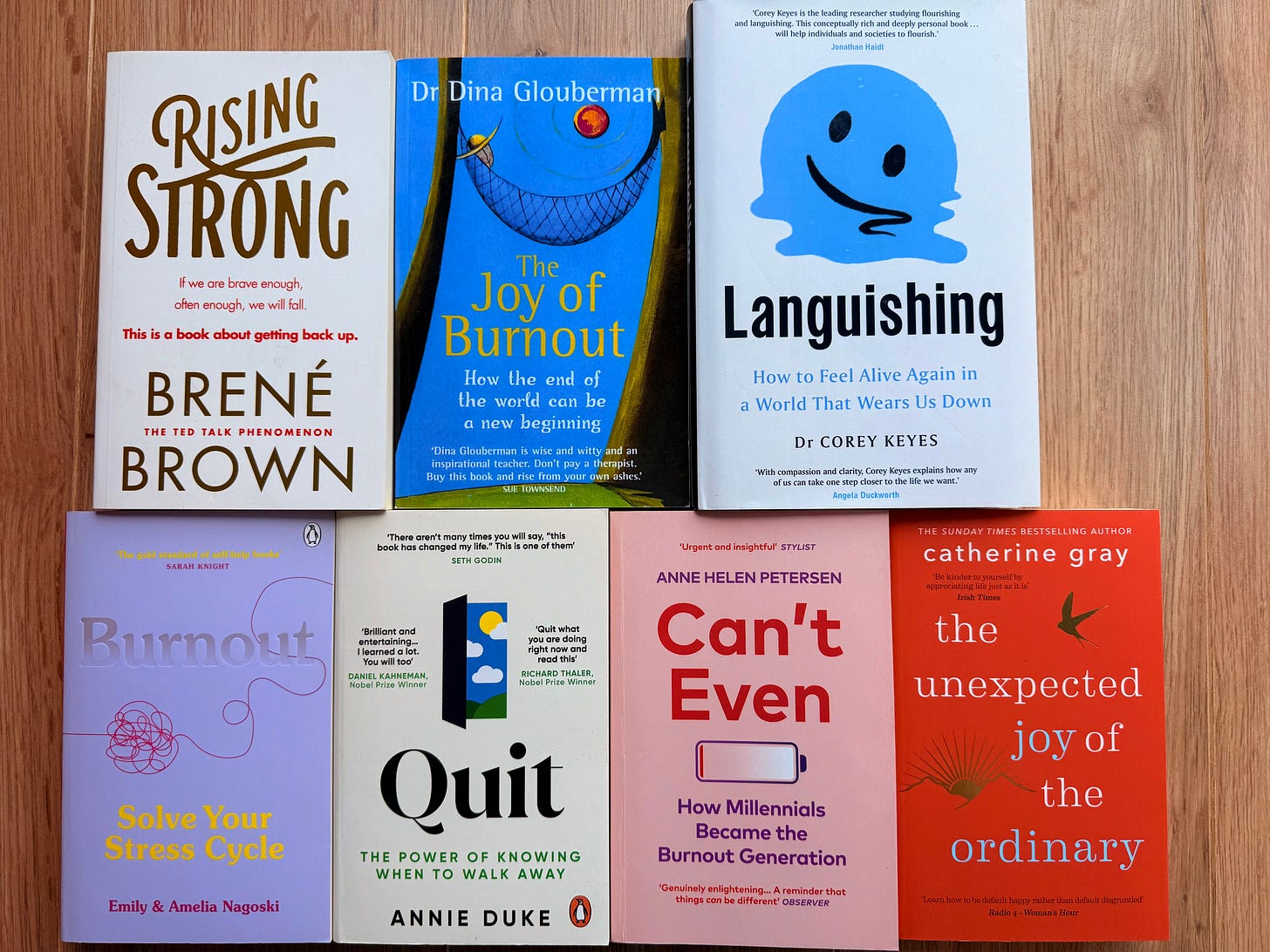
Burnout: The secret to solving the stress cycle by Emily Nagoski and Amelia Nagoski
When the Nagoski sisters were writing the book on burnout, they found that no one had ever asked what burnout is. Most of us have experienced it. This book will not only help you understand what you’re dealing with, it also provides actionable tips you can try on your own accord.
The ideas that worked particularly well for me:
You have to complete the stress cycle.
Nagoski sisters wrote: “Dealing with the stress is a separate process from dealing with the things that cause you stress.” —that blew my mind.
The first step is to differentiate between stress and its stressors. Dealing with stressors is vital, but it has already started a chain reaction, and stress has been activated. To deal with the stress itself, you ‘should’ do some type of physical activity (dancing counts) and receive affection.
Manage the ‘monitor’ in your brain that regulates the frustrations.
In chapter two, the Nagoski sisters introduce the monitor, which knows (1) what your goal is, (2) how much effort you’re investing in that goal, and (3) how much progress you’re making.
My bookmark on how to manage ‘monitor’ is this: ‘not feeling frustrated by the persistent gap between what is and what could or should be.’ This reminder alone allowed me to accept things as they are. It did take months, but eventually, it settled.
Befriending your inner critic is a key step in recovering from burnout.
“It would be great if the world could maybe stop telling us how broken and crazy we are, but we don’t have to wait for the world to change in order to stop feeling this way. We start right now.”
I believe that part 2 of the book is mainly responsible for my recovery; it began with the understanding that burnout is not something I brought on myself but rather something I can and need to influence to improve. So I stopped beating myself up over the situation, I stopped being so self-critical of myself, and I started with kindness to myself.
The Burnout Challenge: Managing People’s Relationships with Their Jobs by Christina Maslach
Burnout is amongst the most misunderstood hazards. Your workplace might want you to believe, even convince you, it’s your personal issue. The opposite is truth. This book confirms that burnout is the most significant on-the-job hazard that employees face today, and every employer should read it. Christina Maslach and Michael P. Leiter show why burnout also needs to be managed by the workplace.
The Joy of Burnout by Dina Glouberman
“Dina Glouberman demonstrates that burnout occurs at work or home when the meaning of what we are doing fades, but we have too much invested in continuing and not taking notice. Our soul is whispering, but we are not listening. If we soldier on, we risk losing everything—our health, our happiness, and even our lives. However, if we hear the message and take action, we can turn our lives around.”
Can't Even: How Millennials Became the Burnout Generation by Anne Helen Petersen
“Burnout is when you hit the wall—but instead of collapsing or taking a rest, you scale the wall and just keep going”—this one sentence convinced me this is the right book for me.
It’s pretty much how I initially dealt with my burnout. I took on a couple more projects and courses to deny the situation I’ve been going through at work. Back then, stopping or slowing down was not an option.
In January 2019, BuzzFeed published Ann Helen Petersen’s cultural criticism piece titled "How Millennials Became The Burnout Generation." The response was the catalyst for the ‘Can’t even’ book. In the less than 300 pages, Petersen traces the institutional and generational causes of burnout through her own experience, observations and interviews with others.
“I never thought the system was equitable. I knew it was winnable for only a small few. I just believed I could continue to optimise myself to become one of them.”
This book will help you let go of your guilt and imagine a possible (better) future.
HBR Guide to Beating Burnout by Harvard Business Review
This book is a collection of HBR-published articles on burnout topics, and that makes it super easy to read. You skim through the titles that speak to you the most, from 'Beating Burnout' to 'Recovering from Burnout' and 'Regaining a Sense of Control'. And plenty of others; it serves as a good reference point and saves you from having to subscribe to HBR in the long term.
Languishing: How to Feel Alive Again in a World That Wears Us Down by Corey Keyes
Adam Grant wrote an article in 2021 for The New York Times titled: There’s a Name for the Blah You’re Feeling: It’s Called Languishing.
Grant's most-read, most-shared, and most-cited article worked as a catalyst for the Corey Keyes book, Languishing.
“Languishing is the neglected middle child of mental health. It’s the void between depression and flourishing — the absence of well-being.”
That description on its own perfectly reflected what I was feeling on the inside. If you share similar feelings: Aimless. Demotivated. Running on empty. You’re not quite sure how to pinpoint what's wrong…. This book will be THE companion.
Quit: The Power of Knowing When to Walk Away by Annie Duke
Annie Duke writes: “Success does not lie in sticking to things. It lies in picking the right thing to stick to and quitting the rest.”
This book, even though it is not written about burnout, is THE book to read as you’re moving through emotions of “caring too much for too long” and“No matter what you do, it’s not enough.” I quit many activities that no longer brought me a sense of joy or purpose while reading this book.
The Unexpected Joy of the Ordinary by Catherine Gray
When you’re burned out, it is almost impossible to feel joy. What was joyful once is ‘meh’ now. Gray’s book shifted my focus back to the tiny, ordinary things, and it frankly reminded me that there’s a way more to life to enjoy. The job and burnout it brought me are not the centre of my world, even though they often felt like it, and they should not be. This impacted me enough to record my reflections in the essay it inspired: Timely lessons from the book: "The Unexpected Joy of the Ordinary"
The Gifts of Imperfection: Let Go of Who You Think You're Supposed to Be and Embrace Who You Are by Brené Brown
Brené writes, “This book is an invitation to join a wholehearted revolution. A small, quiet, grassroots movement that starts with each of us saying, ‘My story matters because I matter.’ Revolution might sound a little dramatic, but in this world, choosing authenticity and worthiness is an absolute act of resistance.”
—plenty of my identity and self-worth were wrapped up in my career. This book was a necessary remedy in unpacking the ‘old belief system,’ letting go of who I thought I was supposed to be and who I wanted to be.
Rising Strong by Brené Brown
This is a book about what it takes to get back up and how owning our stories of disappointment, failure, and heartbreak gives us the power to write a daring new ending.
This book has been my go-to pick-me-up whenever I'm navigating significant challenges. It’s been the case for many years now—loss of my dad, breakup of a long-term relationship, now the burnout.
When tough times come, I turn to my purple highlight in this book, here are some examples for you:
“Sometimes the most uncomfortable learning is the most powerful.”
Or this one
“To live without regret is to believe you have nothing to learn, no amends to make, and no opportunity to be braver with your life”.
Or this one
“All revolutions start with a new vision of what’s possible. Our vision is that we can rise from our experiences of hurt and struggle in a way that allows us to live more wholehearted lives. However, transforming the way we live, love, parent, and work requires us to act on our vision: The rising strong process is nowhere near as powerful as the rising strong practice. The revolution starts when we own and embody what lives at the heart of rising strong—the story rumble—in our everyday lives.”
I believe if you follow and read these books in the sequence I have, you might be able to wake up and remember burnout as a memory, an obstacle you’ve overcome, a challenge you’ve faced and survived, even won.
The term burnout was first coined in 1975 by Herbert Freudenberger

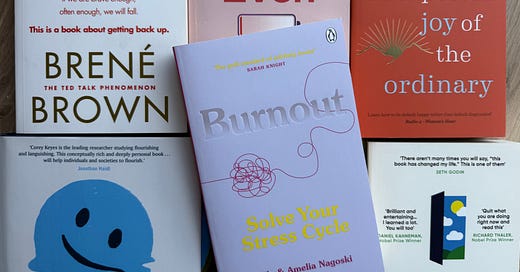


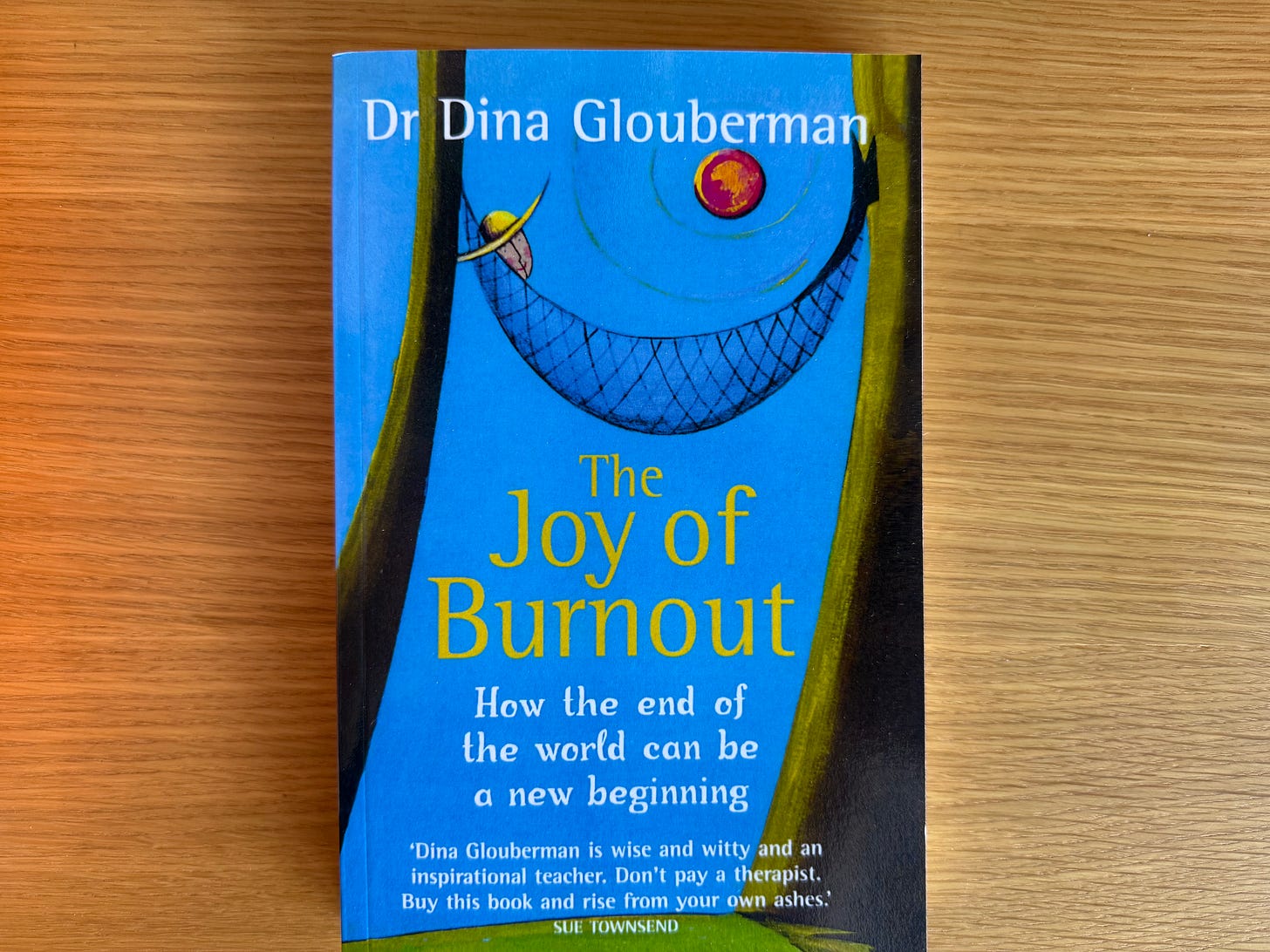
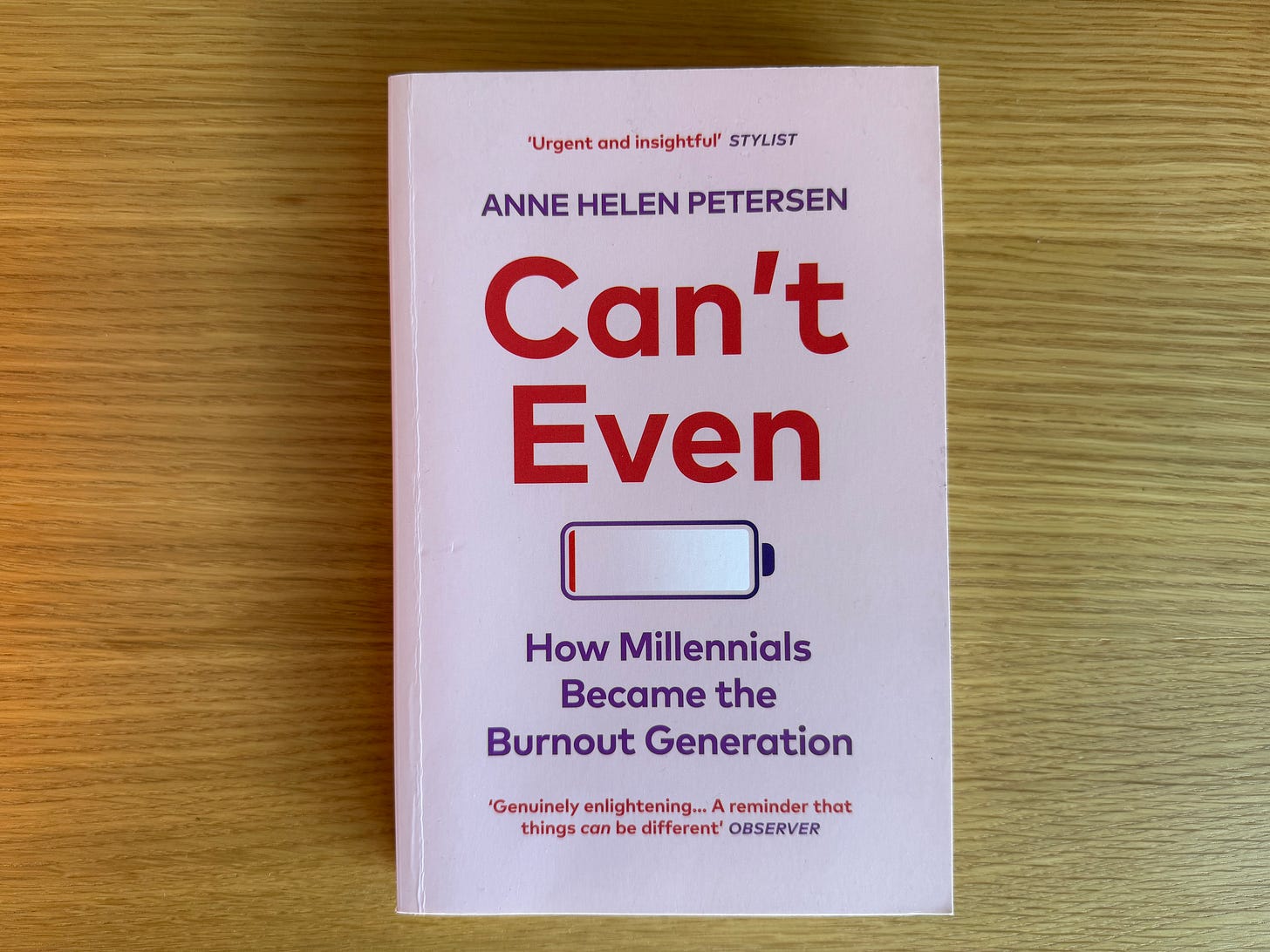
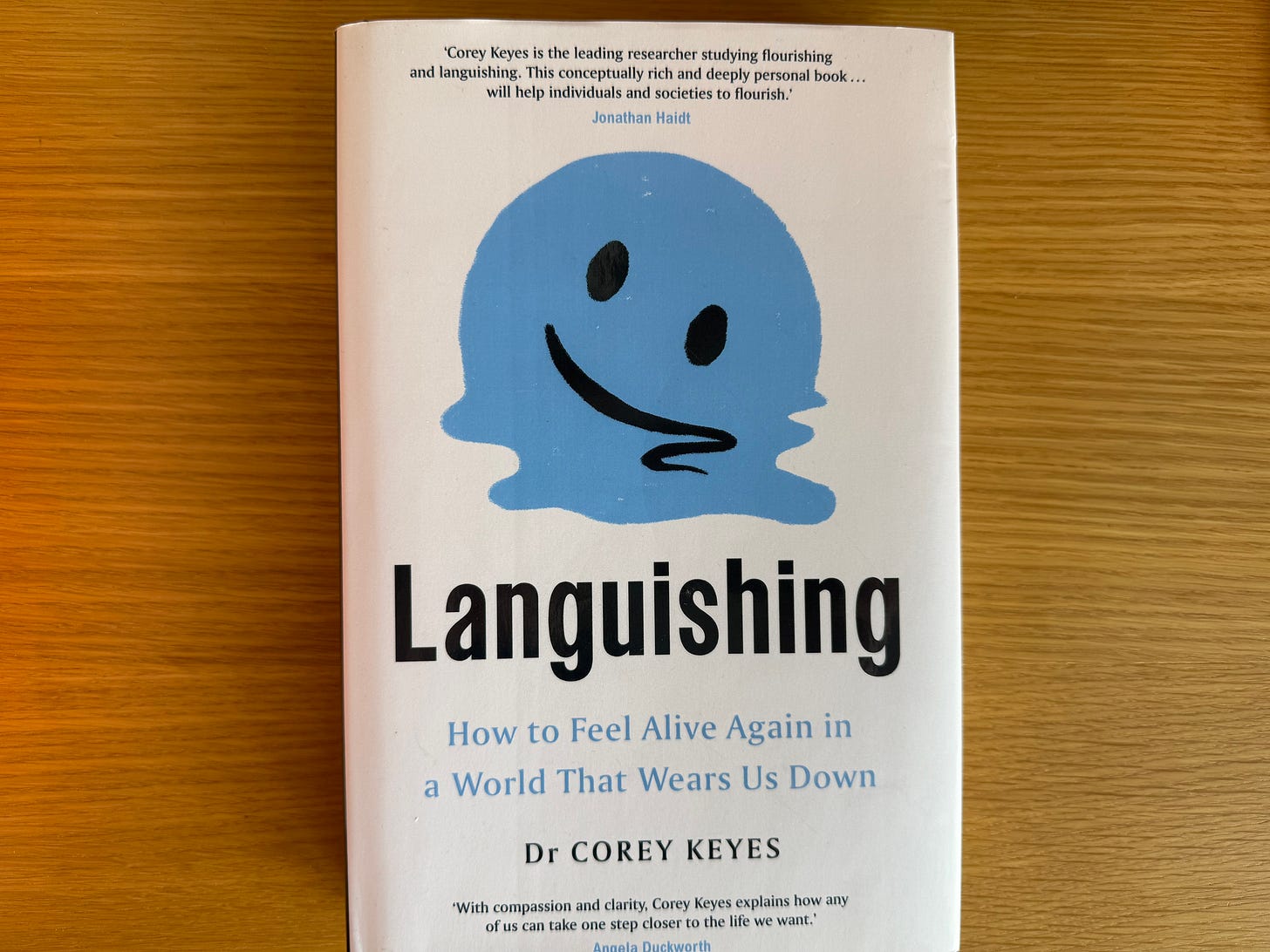
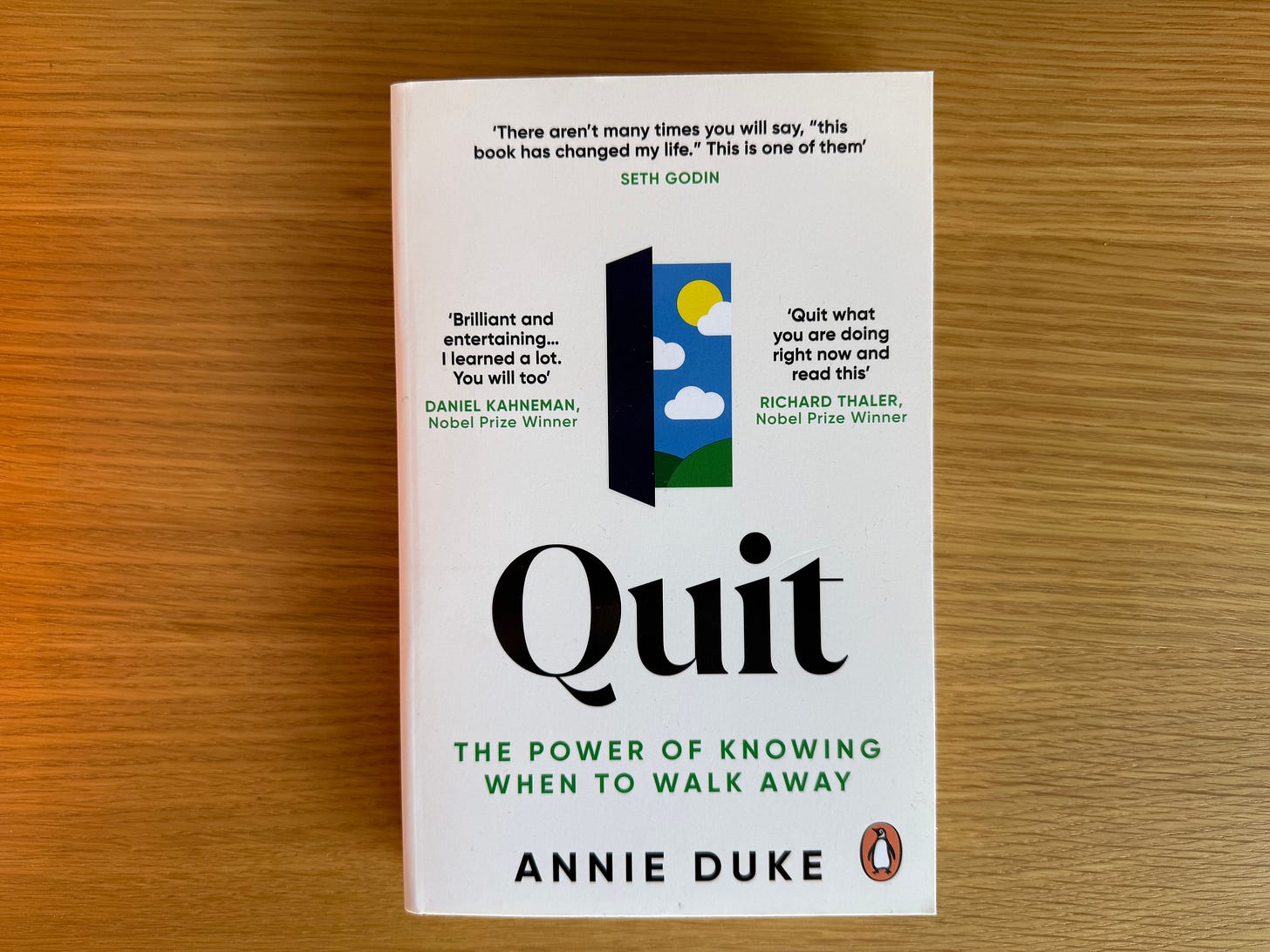
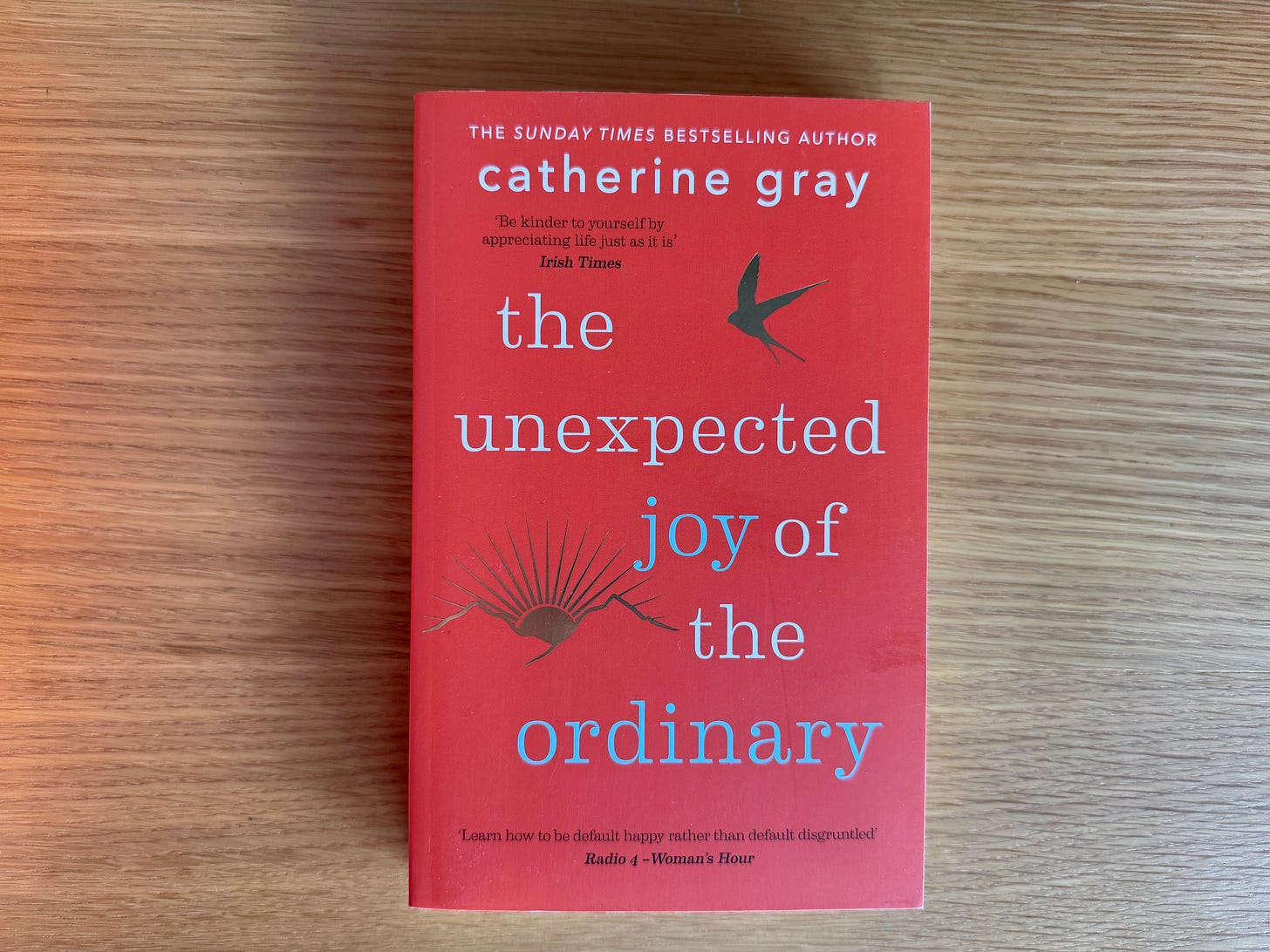

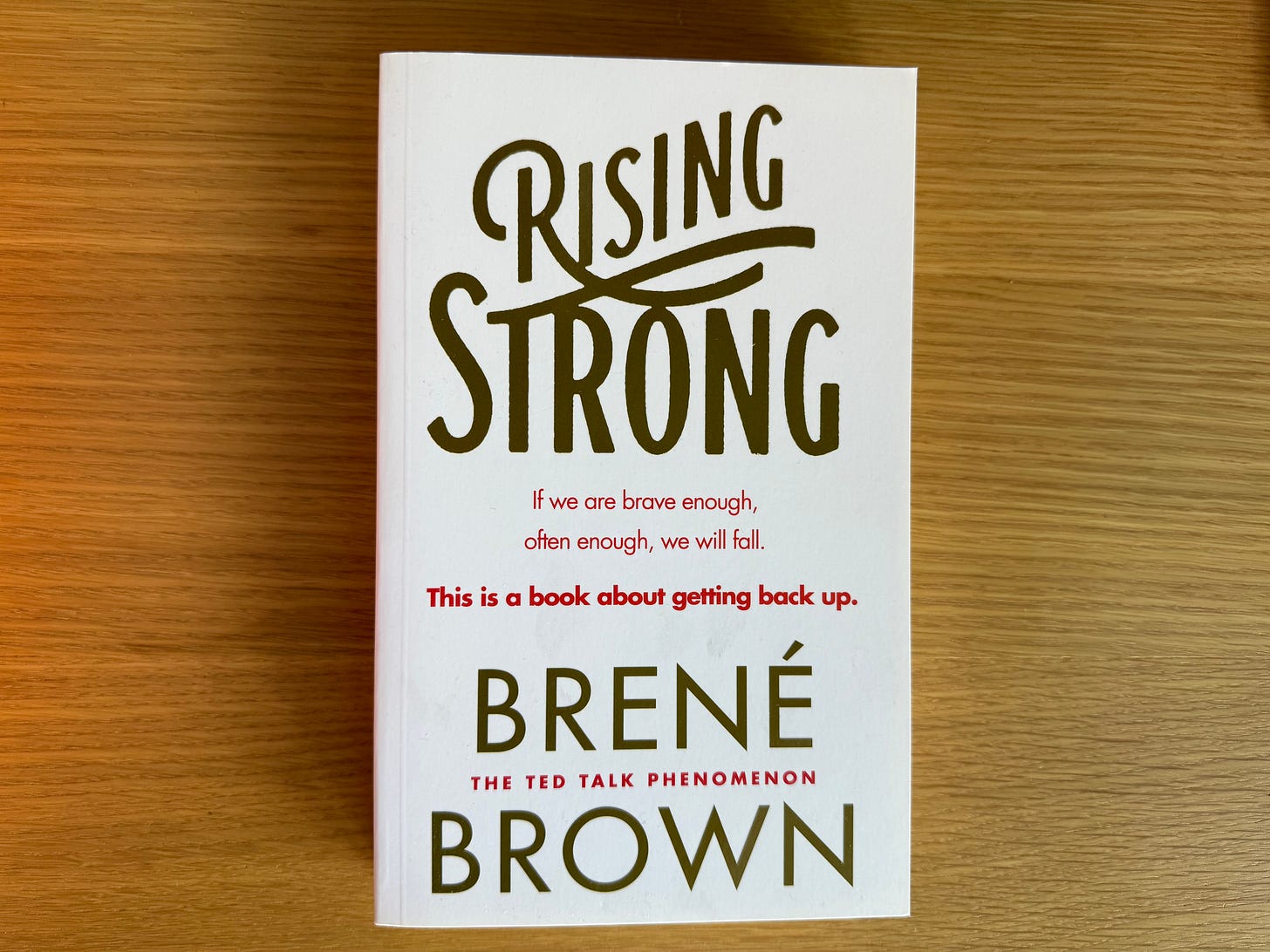
The problem is that when you need the books most, you cannot read them...
Reading a whole book must be hard sometimes with burnout, as it is with chronic/fatigue illnesses. I discovered poetry when I had long covid. You can dip in and out, and read just a few words and have them resonate in your head for ages to lift you up/ground you. Publishing my second collection next week!!